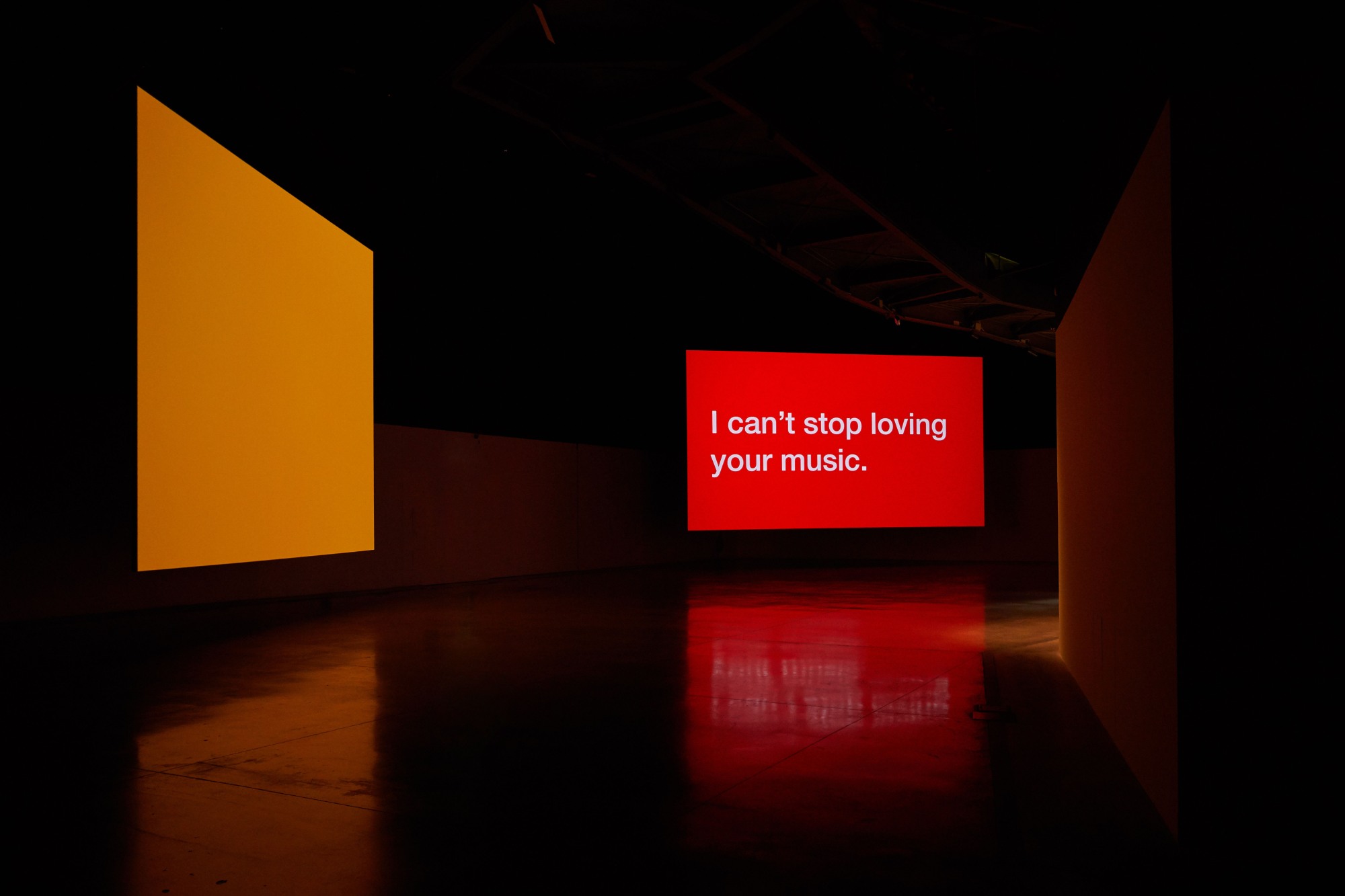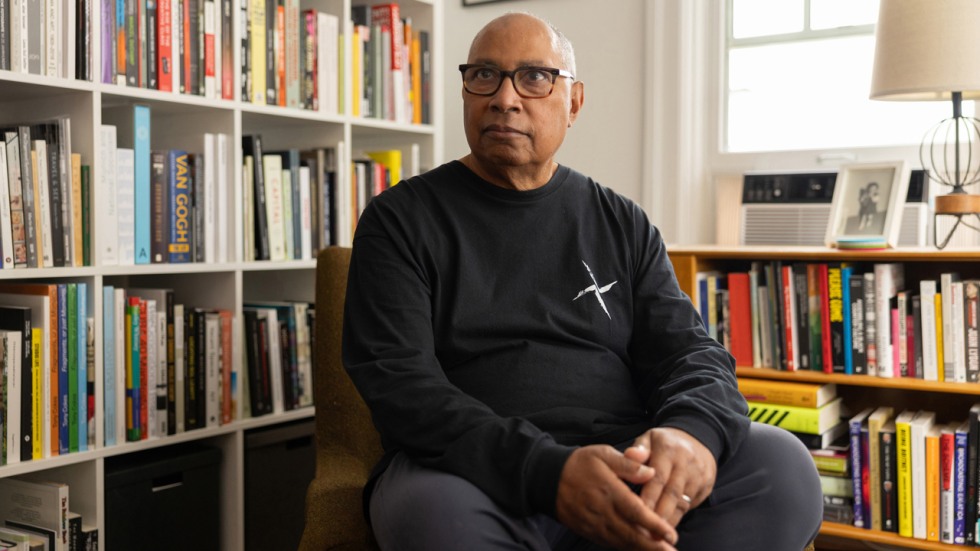PROVIDENCE, R.I. [Brown University] — The MacArthur Foundation has named Tony Cokes, a professor of modern culture and media at Brown University, one of 22 MacArthur Fellows from across the U.S. for 2024.
The honor is accompanied by an $800,000 stipend, awarded over five years with no conditions, to enable Cokes to advance his artistic practice. Cokes’ video works and installations examine historical and cultural moments through a signature style that places frames of appropriated text against backgrounds of solid colors or images, paired with musical soundtracks.
He said he was surprised to receive the award, often dubbed the “genius grant,” for which recipients are nominated anonymously by leaders in their respective fields and considered by an anonymous selection committee.
“Receiving a MacArthur award is something I didn’t know would happen for me at my advanced level and age,” said Cokes, who is 68 and has been teaching at Brown since 1993.
Cokes plans to use some of the funding to concentrate on a long-term project focused on the legacy of Factory Records, an independent record label founded in 1978 in Manchester, England, that produced albums by the bands Joy Division and New Order.
“I’ve been working on this project for about a decade, so it will be nice to be able to seriously pursue it and build a team to work on it,” Cokes said.
The no-strings-attached aspect of the grant offers a unique opportunity for creative and flexibility, he noted.
“It’s great to have that openness,” Cokes said. “I’ve always kind of worked to my own tune and desires, but it’s nice to have such freedom over the next five years to find the things that are most interesting to me and pursue them.”
Cokes’ artistic practice involves sampling and recombining visual, textural and musical fragments, including pop music, film footage, journalism, philosophy texts and social media. For example, in a 1988 video piece, “Black Celebration (A Rebellion Against the Commodity),” he combined documentary footage of the uprisings that took place in Black neighborhoods in Boston, Los Angeles, Detroit and Newark in the 1960s with samples of texts by musicians Morrissey of the Smiths and Martin Gore of Depeche Mode, the philosopher and theorist Guy Debord, and others.

In his work “Evil.16: Torture Musik,” created between 2009 and 2011 as part of an ongoing series, Cokes responded to the U.S.-led “war on terror” by pairing portions of text from an article about advanced torture techniques with pop songs that were allegedly used as a form of music torture in the Guantanamo Bay detention camp and other sites.
More recently, in 2020, Cokes examined the discourse around police brutality and anti-Blackness in his work “HS LST WRDS,” which incorporated the final words, with the vowels removed, of Elijah McClain, a 23-year-old who was killed in 2019 in the custody of Colorado police.
“As in many of Cokes’ works, the text is more than language conveying information and becomes a visualization of terrifying breathlessness,” the MacArthur Foundation wrote in a statement announcing his award. “Through his unique melding of artistic practice and media analysis, Cokes shows the discordant ways media color our understanding and demonstrates the artist’s power to bring clarity and nuance to how we see events, people and histories.”
